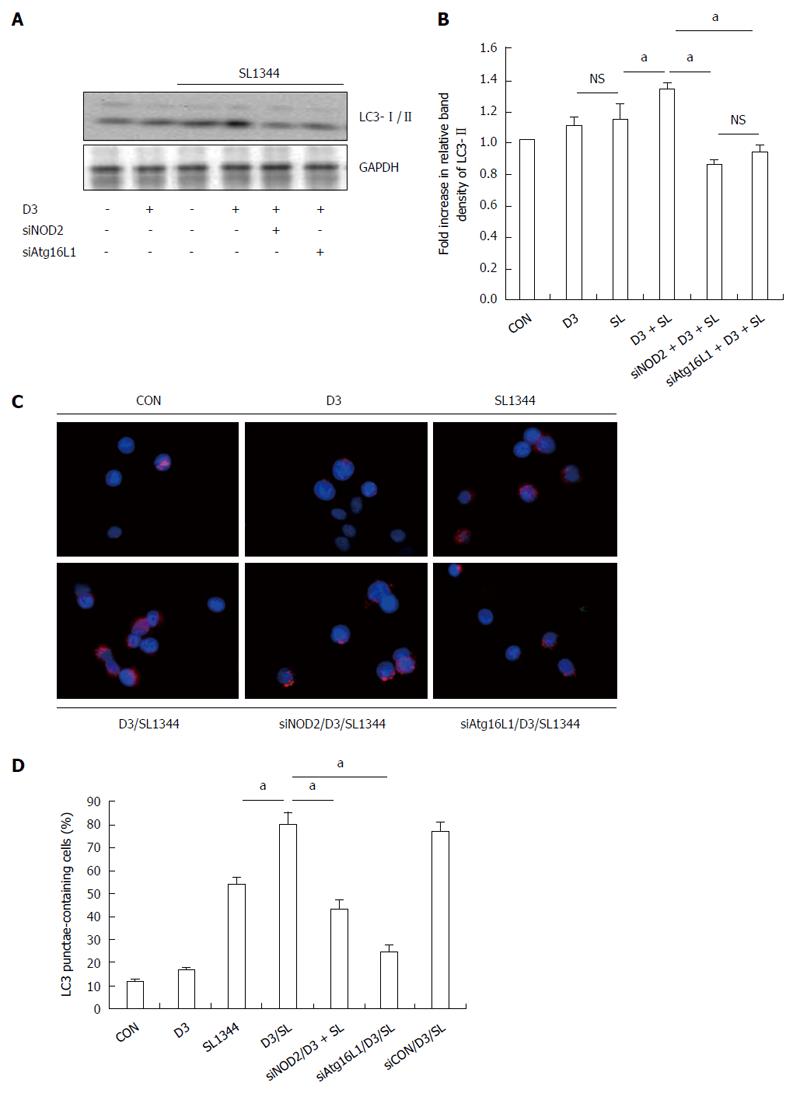Copyright
©The Author(s) 2016.
World J Gastroenterol. Dec 21, 2016; 22(47): 10353-10363
Published online Dec 21, 2016. doi: 10.3748/wjg.v22.i47.10353
Published online Dec 21, 2016. doi: 10.3748/wjg.v22.i47.10353
Figure 2 Involvement of NOD2 and Atg16L1 in 1,25D3-enhanced autophagy expression in Salmonella-infected Caco-2 cells.
Caco-2 cells were transfected with control siRNA, NOD2 siRNA or Atg16L1 siRNA (siCON: non-target control siRNA; siNOD2: siRNA to NOD2; siAtg16L1: siRNA to Atg16L1) for 48 h. The transfected cells were left uninfected (CON) or infected by wild-type S. typhimurium strain SL1344 (SL) in the absence or presence of 1,25D3 (D3). Knockdown of NOD2[21] and Atg16L1[18] was confirmed previously by Western blot. The transfected cells were pretreated with 1,25D3 prior to wild-type S. typhimurium strain SL1344 infection for 1 h. Immunoblotting was performed on whole cell lysates with antibody to detect autophagy LC3-I/II protein expression. The results shown are representative of three separate experiments. GAPDH was detected for normalization of cytosolic protein. Representative immunoblots (A) and densitometric quantification of immunoreactive bands (B) are shown. The relative band intensities of LC3-II in Caco-2 cells are quantified as fold-increases compared with the control cells. The cells were fixed, permeabilized and stained with anti-LC3 (red), and LC3 puncta formation was detected by a confocal microscope; representative images of LC3 punctae are depicted. Scale bar = 10 μm (C); The percentage of cells showing accumulation of LC3 punctae is reported (D). Data are mean ± SEM of three independent experiments. aP < 0.05.
- Citation: Huang FC. Vitamin D differentially regulates Salmonella-induced intestine epithelial autophagy and interleukin-1β expression. World J Gastroenterol 2016; 22(47): 10353-10363
- URL: https://www.wjgnet.com/1007-9327/full/v22/i47/10353.htm
- DOI: https://dx.doi.org/10.3748/wjg.v22.i47.10353









